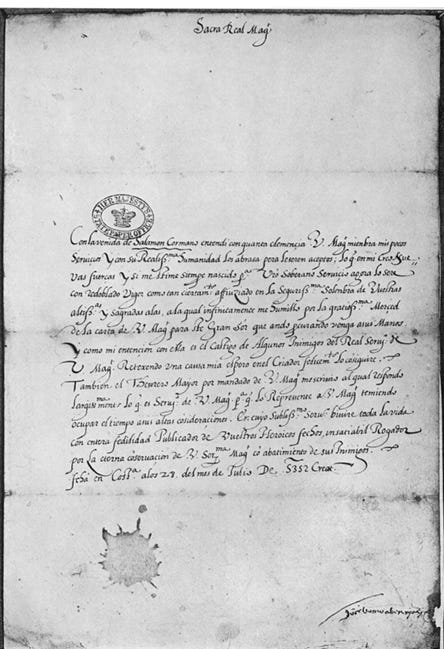The Doctor, the Duke and the Man who Wanted to be King
Secret Sephardi Diplomacy in the Elizabethan Age
It is a myth of Jewish history that in times past Jews lived unremarkable lives, cut off from their neighbours, persecuted and discriminated against, excluded from the political, cultural and scientific developments in the world around them. It is true that such lives were lived by impoverished Ashkenazi Jews in Northern and Eastern Europe. But for a considerable number of Jews in the East, in the Ottoman lands ruled over by the Turkish Sultan, there was no shortage of opportunity for advancement, or to make a name for oneself. Provided one had the skills, confidence, motivation and contacts. Sadly, until quite recently most Jewish historians came from a European background. They paid most attention to the history of the communities that were familiar to them. The stories of the eastern Jews, of the Sefardim, Mizrachim and particularly the conversos, those had been forcibly converted to Christianity but who had never forgotten who they were, have been overlooked.
This explains why so little has been written about the Jewish diplomatic and intelligence-gathering networks in the early modern age. One such network, orchestrated from Turkey, helped the Sultan manage his own sprawling empire, allowed him to pull strings in European diplomacy, and made him something of a player in the new, fast growing settlements in North America and the Caribbean.
Alvaro Mendes was the figure around whom this informal spy network revolved. He was born in Portugal around 1530; his converso family traded in precious stones from the Orient and he had made a fortune for himself as a young man in India, buying from the diamond mines. He was knighted on his return to Portugal in 1555 and spent some years travelling around Europe, using his money to build influence and extend his network of contacts. He was a relative of the formidably wealthy and powerful philanthropist, Doña Gracia Nasi. She was now living in Constantinople where the Sultan had recently bestowed the title of Duke of Naxos on her nephew João and appointed him as one of his principal counsellors. Alvaro Mendes was tightly connected to a small, privileged and intimate elite, their fingers firmly wrapped around the levers of power. Nowhere were they keener to operate those levers than in their dealings with Spain, the bête-noir of the converso universe.
No matter where they lived, the Conversos, those Jews whose families had been forcibly converted to Christianity in the 1490s, had one trait in common. They hated the Spanish. The Inquisition in Spain had persecuted, slaughtered, forcibly converted and expelled their ancestors. Those who fled to Portugal soon discovered that the Portuguese were just as bad, but at least the country had offered them a home. Should conflict break out between Spain and Portugal, few were in any doubt as to which side the influential converso networks would come down upon.




